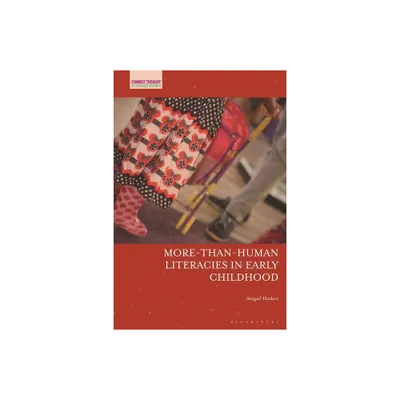Home
Children and Materialities: The Force of the More-than-human in Children's Classroom Lives
Loading Inventory...
Barnes and Noble
Children and Materialities: The Force of the More-than-human in Children's Classroom Lives
Current price: $69.99


Barnes and Noble
Children and Materialities: The Force of the More-than-human in Children's Classroom Lives
Current price: $69.99
Loading Inventory...
Size: OS
*Product Information may vary - to confirm product availability, pricing, and additional information please contact Barnes and Noble
This book makes the case for young children as both keenly materially aware of and highly dependent on sets of interrelated material-discursive circumstances. It argues that long-term engagement with children around the topic of meaning-matter relations upends many taken-for-granted notions of consumption, self-regulation, knowledge production, and what constitutes quality of life within a school setting.
The book provides complex accounts of agency on multiple scales - the capability of children to shape and share research, the force of objects, stuff, and things to impact the "social" workings of a classroom, and the impact of nonhuman animals on the trajectory of the ways in which children relate to each other.
This work makes a significant contribution to both theoretical conceptions and practical enactments of childhoods, productively addressing the many contradictions inherent in a posthuman and participatory approach to researching with young children. It also offers insights into how the everyday materialities of children’s classrooms (and their complex representations) are capable of disrupting the common-sense order of things.
The book provides complex accounts of agency on multiple scales - the capability of children to shape and share research, the force of objects, stuff, and things to impact the "social" workings of a classroom, and the impact of nonhuman animals on the trajectory of the ways in which children relate to each other.
This work makes a significant contribution to both theoretical conceptions and practical enactments of childhoods, productively addressing the many contradictions inherent in a posthuman and participatory approach to researching with young children. It also offers insights into how the everyday materialities of children’s classrooms (and their complex representations) are capable of disrupting the common-sense order of things.


















